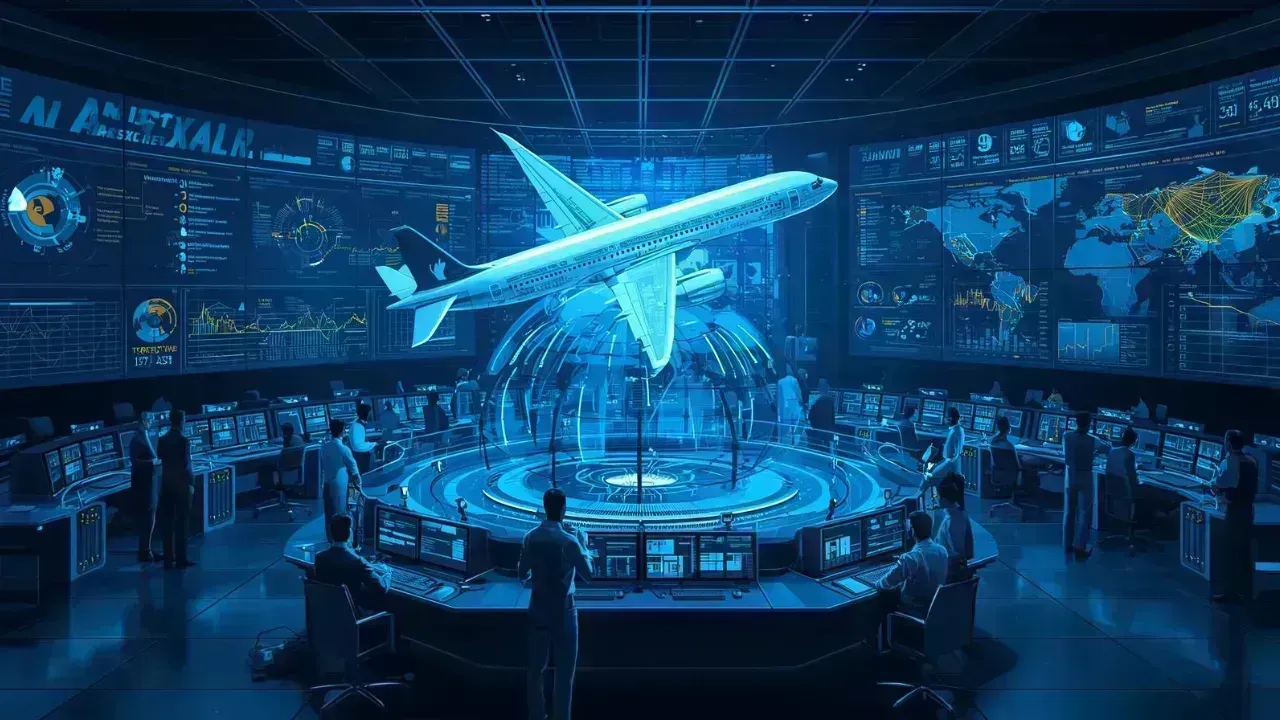
Post by : Meena Rani
In the era of digital transformation, Airbus is leveraging artificial intelligence to revolutionize its production planning and supply chain management. The A321XLR, with its growing demand, requires precision forecasting to ensure that production targets are met without delays or inefficiencies. AI-driven demand forecasting has emerged as the linchpin of Airbus’s ambitious ramp-up strategy.
The Importance of Accurate Demand Forecasting
For large-scale aircraft manufacturing, predicting demand is more than an economic exercise—it is critical for operational efficiency. Misjudging market needs can lead to overproduction, wasted resources, or delayed deliveries, which can damage Airbus’s reputation and financial performance.
The A321XLR’s extended range has made it a popular choice among airlines seeking to operate longer routes with narrow-body efficiency. Its popularity has led to a surge in orders, making traditional forecasting methods insufficient. Airbus must consider global economic trends, airline route planning, fuel prices, and regulatory factors to predict demand accurately.
Artificial intelligence algorithms analyze vast datasets, including historical sales, market trends, airline orders, and production capabilities. These insights allow Airbus to anticipate demand shifts, optimize inventory, and schedule production effectively.
AI systems integrate data from various internal and external sources, including:
This comprehensive integration enables a holistic view of production requirements and supply constraints.
Predictive models allow Airbus to foresee potential bottlenecks and proactively address them. For instance, if a Tier-2 supplier is predicted to experience delays in composite parts delivery, the AI system can trigger contingency plans, re-routing materials, or adjusting assembly schedules to minimize disruption.
Airbus uses digital twin technology to create virtual replicas of both aircraft and factory workflows. This enables simulation of production sequences, testing of “what-if” scenarios, and identification of efficiency gains before physical changes are implemented.
By simulating different production scenarios, Airbus can determine the optimal allocation of resources, identify labor bottlenecks, and balance assembly line workloads. Digital twins reduce trial-and-error in the physical production environment, saving time and cost.
The digital twin interacts with AI demand forecasts, dynamically adjusting production schedules in real time. This integration ensures that Airbus can respond swiftly to changes in airline orders or supply disruptions.
AI-driven forecasting not only optimizes Airbus’s internal production but also transforms interactions with suppliers. Real-time insights are shared across Tier-1 and Tier-2 suppliers, allowing them to align resources and capacities with Airbus’s production plan.
Suppliers receive AI-generated predictions, helping them plan labor, raw material procurement, and inventory management. This proactive approach reduces delays, avoids overproduction, and strengthens collaboration across the supply chain.
Global supply chains face risks ranging from material shortages to geopolitical tensions. AI tools help Airbus anticipate disruptions, model their potential impact, and implement contingency measures to maintain production targets.
Workforce and AI Collaboration
AI does not replace human expertise; instead, it complements it. Airbus engineers, planners, and logistics managers work with AI insights to make informed decisions. This synergy improves accuracy, efficiency, and flexibility in production planning.
Airbus provides extensive training for its workforce to interpret AI outputs and integrate them into decision-making. Upskilling employees ensures that the organization can fully leverage advanced technologies.
Several Airbus facilities have already reported measurable improvements from AI-driven forecasting. For example, the Toulouse assembly line reduced delays in fuselage assembly by 15% after integrating predictive models, while Hamburg optimized engine delivery schedules, minimizing idle time for assembly workers.
Key takeaways from AI adoption include the importance of clean, high-quality data, ongoing collaboration with suppliers, and iterative model refinement. Continuous improvement ensures that forecasts remain accurate and actionable.
Airbus plans to expand AI applications to other areas, such as predictive maintenance, quality inspection, and energy efficiency. The insights gained from A321XLR production forecasting will inform future programs, including the development of next-generation aircraft.
AI tools also help Airbus meet sustainability goals by optimizing material usage, reducing waste, and improving energy efficiency in production. Smarter planning ensures a balance between high-volume output and environmental responsibility.
With AI-driven forecasting, Airbus maintains a competitive edge in the global aerospace market, ensuring timely deliveries, efficient production, and superior customer satisfaction. The digital transformation of planning and logistics has become a strategic differentiator for the company.
In conclusion, AI-driven demand forecasting represents a transformative force for Airbus. By integrating advanced analytics, digital twins, and predictive modeling, Airbus not only meets the high demand for the A321XLR but also sets a new standard for efficiency and resilience in aerospace manufacturing. This digital brain ensures that Airbus can continue to scale production intelligently, minimize risks, and strengthen its global leadership.
#trending #latest










Advances in Aerospace Technology and Commercial Aviation Recovery
Insights into breakthrough aerospace technologies and commercial aviation’s recovery amid 2025 chall

Defense Modernization and Strategic Spending Trends
Explore key trends in global defense modernization and strategic military spending shaping 2025 secu

Tens of Thousands Protest in Serbia on Anniversary of Deadly Roof Collapse
Tens of thousands in Novi Sad mark a year since a deadly station roof collapse that killed 16, prote

Canada PM Carney Apologizes to Trump Over Controversial Reagan Anti-Tariff Ad
Canadian PM Mark Carney apologized to President Trump over an Ontario anti-tariff ad quoting Reagan,

The ad that stirred a hornets nest, and made Canadian PM Carney say sorry to Trump
Canadian PM Mark Carney apologizes to US President Trump after a tariff-related ad causes diplomatic

Bengaluru-Mumbai Superfast Train Approved After 30-Year Wait
Railways approves new superfast train connecting Bengaluru and Mumbai, ending a 30-year demand, easi